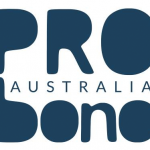Banning Foreign Donations Without Hurting Charities

26 November 2018 at 2:49 pm
When foreign cash pollutes our polity, charities lose, writes Labor MP Andrew Leigh and Senator Don Farrell, who explain how it proved possible to ban foreign donations without silencing charities.
In 2009, Rhonda Galbally and Bruce Bonyhady founded the National Disability and Carer Alliance, which auspiced the Every Australian Counts campaign. It had an ambitious goal: to build the community case for a National Disability Insurance Scheme. For decades, people had talked about the inadequate patchwork of disability supports, but the cost and complexity had seen it relegated to the bottom of the priority list. In 2013, Parliament passed the scheme into law with bipartisan support.
Community groups are often the drivers of social change. From encouraging supermarkets to phase out battery-farmed eggs to demanding a royal commission into misconduct in the financial sector, our charities and not for profits have been at the forefront. Even when political leaders are supportive, these groups can build a broad coalition. Franklin D. Roosevelt is quoted (perhaps apocryphally) telling progressive activists who came to see him in the White House: “I agree with you, I want to do it, now make me do it”.
Alas, not everyone supports the role of charities and NFPs in our society. Over recent years, the Coalition has tried to silence the voices of environmental charities and legal charities. Social service charities have been asked to sign government contracts containing “gag clauses”. The Coalition has tried to put a velvet rope across the entrance to the public square.
After failing in their five-year crusade to shut down the charities commission, the Coalition appointed a charity critic as its head. No fewer than six ministers have had responsibility for charities under the Abbott, Turnbull and Morrison governments. We have seen two open letters from the sector to the prime minister, effectively asking the Coalition to cease its war on charities. Little wonder that two out of three charities report that they are finding it harder to be heard by the federal government than five years ago.
The latest threat to charities came in the form of draft legislation to ban foreign donations, which would have prevented non-government organisations from engaging in simple issue advocacy unless they could be sure that all their funds were raised domestically. For organisations that worked with international partners to raise awareness of Indigenous disadvantage, Tuberculosis, consumer rights, deforestation or inequality, this was a nightmare.
To its credit, the Coalition were willing to sit down with Labor and discuss how to ban foreign donations without drowning charities and NFPs in unnecessary paperwork. We also benefited from the engagement of the Hands Off Our Charities alliance, which engaged constructively on the details of the draft legislation. On 15 November, the amended bill passed the Senate, and will hopefully clear the house in the final week of November.
It’s well beyond time that we got foreign money out of politics. If you care about the kinds of cyber attacks and hacking campaigns that hit the last US presidential race, you should also be worried when the foreign influence comes from donors rather than hackers. At the start of last year, Bill Shorten moved a private member’s bill to ban foreign donations. As a point of principle, Labor does not accept foreign donations.
Meanwhile, our Coalition counterparts continue to take cheques from South-East Asian moguls and British Lords. Having voted in the Senate to ban foreign political donations, you would have thought that they’d now voluntarily reject such donations – but the Liberals and Nationals seem to be waiting until the last possible moment before they do the right thing.
When foreign cash pollutes our polity, charities lose. Deep-pocketed international donors are rarely singing from the same hymn sheet as grassroots community campaigners. Mega-rich political donors are unlikely to have the same interest in social disadvantage, global poverty and climate change as our charity and NFP sector.
Under the amended laws, entities will only become “political campaigners” if their electoral expenditure tops $500,000 in a single year. On current figures, that captures only around ten organisations, none of them charities. These groups will be unable to receive any foreign donations.
As for the rest, charities and NFPs will only need to report electoral expenditure if it exceeds $13,800, as they do under existing laws. Campaigns run for the dominant purpose of educating, raising awareness or encouraging debate over a public policy issue are not captured.
When Labor began to rework the government’s laws, there were some that said it couldn’t be done. The Greens, for example, said it was necessary to scrap the law and start again. But to take that approach would have been to torpedo the best chance of getting foreign money out of Australian elections. Instead, Bill Shorten encouraged us, along with Andrew Giles, Milton Dick, Chris Ketter and Carol Brown, to work with charities to find a centrist path. Just as it’s possible to walk and chew gum at the same time, it’s proved feasible to ban foreign electoral cash without hurting charities.
About the authors: Andrew Leigh is the shadow minister for charities and not for profits.
Senator Don Farrell is the shadow special minister of state.








